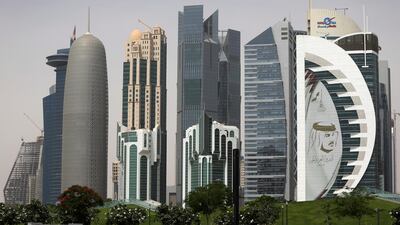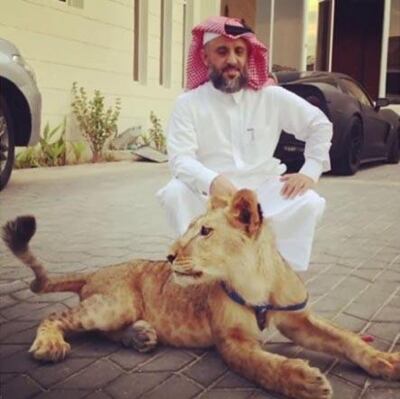A Qatari financier accused of helping to fund the Al Qaeda leadership, including the planner behind the September 11 attacks is reportedly circumventing UN sanctions to tap into his frozen bank accounts.
Khalifa Al Subaiy, designated by the UN in 2008, has been able to withdraw up to $10,000 (Dh36,733) a month for "basic necessities" despite an asset freeze, The Wall Street Journal reported.
Al Subaiy lives in the Qatari capital Doha and used to work for the country’s central bank.
Home countries can apply for an exemption so designated people can cover basic expenses such as food and rent.
But the money is supposed to be tightly controlled to prevent them from undertaking nefarious activities such as continuing to fund or support terror groups.
UN officials told the paper that some member states were failing to monitor designated terrorists or their supporters in their countries and prevent them from obtaining large funds.
They said the procedure lacked the requisite oversight or accounting of how the funds were then spent.
“Qatar has applied for an unreasonable amount of money,” a source said.
Another issue was that a home country’s request for money could only be thrown out by a unanimous vote from all 15 UN Security Council members.
“It’s very difficult to get agreement on anything at the Security Council,” a source said.
The result is that funds are almost always allowed regardless of the size of the requested withdrawal, even if there is no evidence supplied to show how the money was used.
Al Subaiy’s case is part of a wider issue where accused ISIS and Al Qaeda supporters managed to use loopholes to tap into their funds.
Blacklisted people were able to access their accounts on 71 out of 72 requests, from 2008 to 2018.
In a 2008 US Treasury ruling, Al Subaiy was described as a Qatar-based terrorist financier and facilitator who has provided financial support to Al Qaeda leaders, including Khalid Sheikh Mohammed, the September 11 architect.
It said he “also worked with senior Al Qaeda facilitators to move extremist recruits to Al Qaeda training camps in Pakistan.
"In addition, Al Subaiy has served as a diplomatic and communications conduit between Al Qaeda and third parties in the Middle East."
In 2008, he was convicted in his absence in Bahrain on terrorist financing charges. He was then arrested in Qatar but only imprisoned for six months, a move slammed by US officials.
Al Subaiy reportedly resumed his activities soon after.
There are similar issues with other UN sanctions measures but there are now pushes to reform the rules around what and how these are applied.
This is partly because of the controversy surround Al Subaiy’s case.
Qatar’s support for terrorist groups was one of the central reasons that the UAE, Saudi Arabia, Bahrain and Egypt cut ties with Doha in 2017. They also accused the peninsular nation of interfering in their internal affairs.
There is a well-documented case from 2015 in which the Qatari government paid up to $1 billion in ransom to Iranian proxies and Iran's Islamic Revolutionary Guard Corps' Quds Force leader Qasem Soleimani.
The government also interfered in the Syrian conflict to enforce the relocation of entire villages to try to secure the release of 28 members of the royal family, who were kidnapped in southern Iraq while on a hunting expedition.
Many Gulf states have taken active measures to prevent private citizens donating to militant groups, knowingly or not.
As well as active militant fundraisers who have operated in Gulf states, there have been cases of people being duped into making what they believed were humanitarian donations, only to have to money go to terrorists.
Several states, including the UAE, have outlawed fundraising for organisations not vetted by the government to ensure they are not diverting funds to militants.
The National has contacted the UN Security Council chair state, currently Kuwait, for comment.


